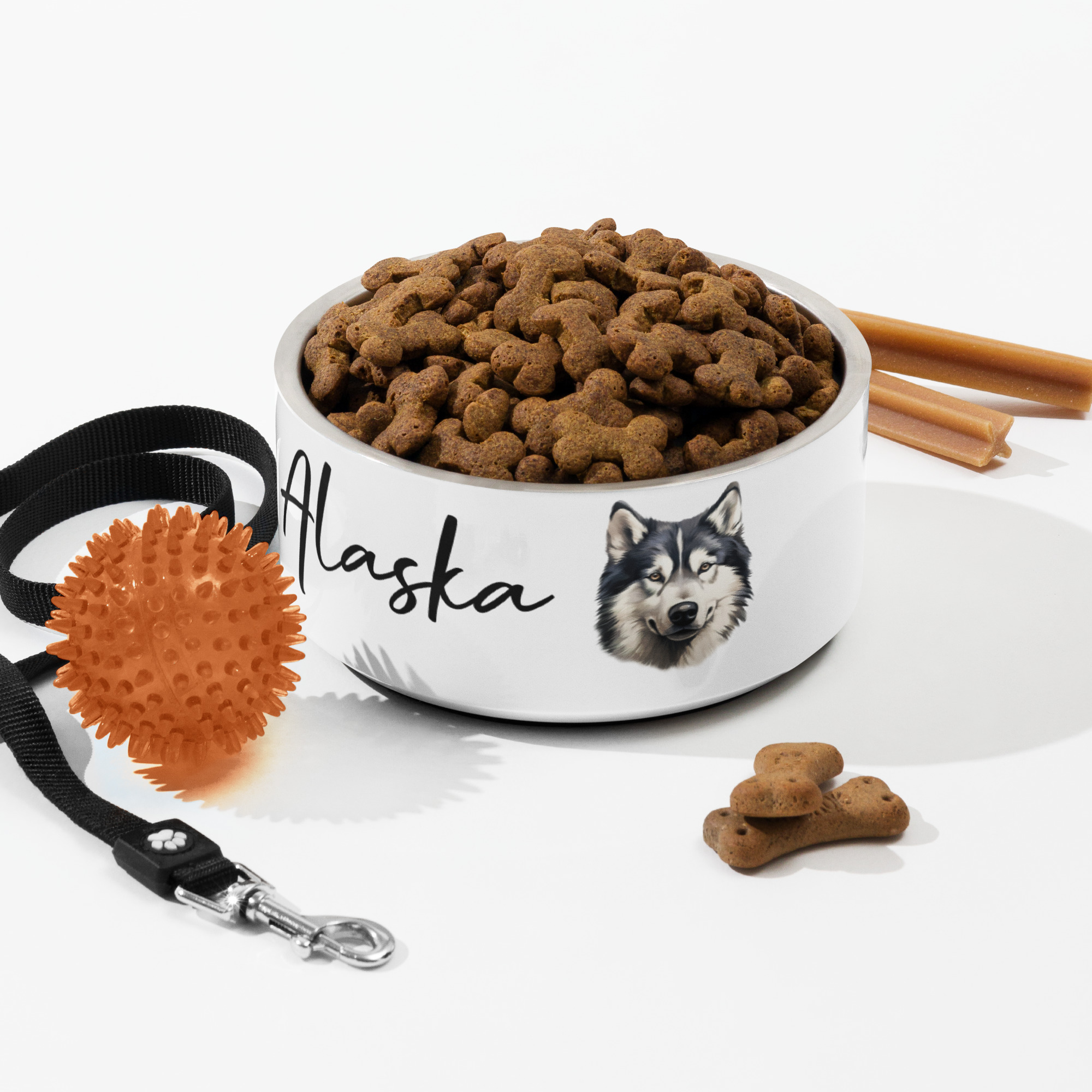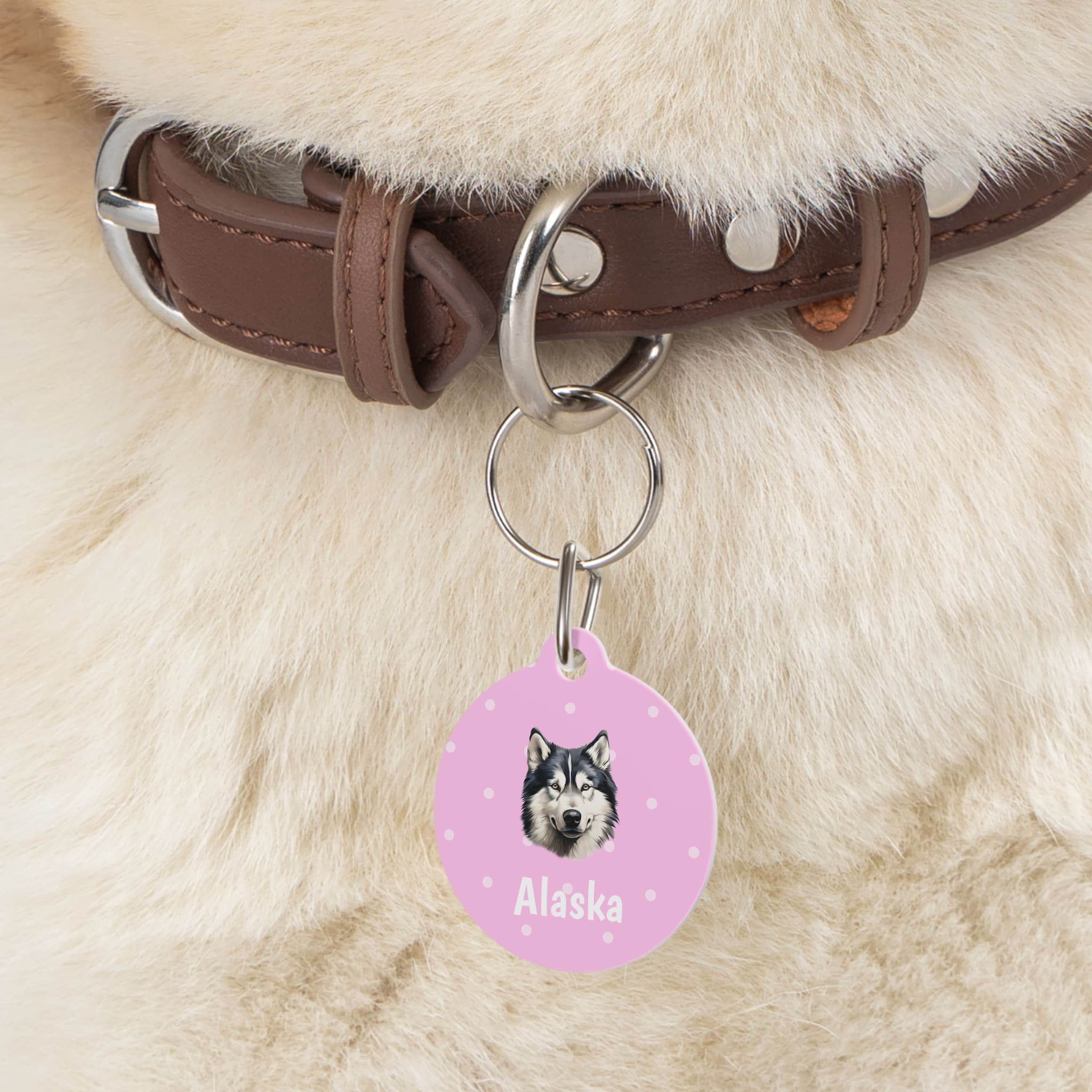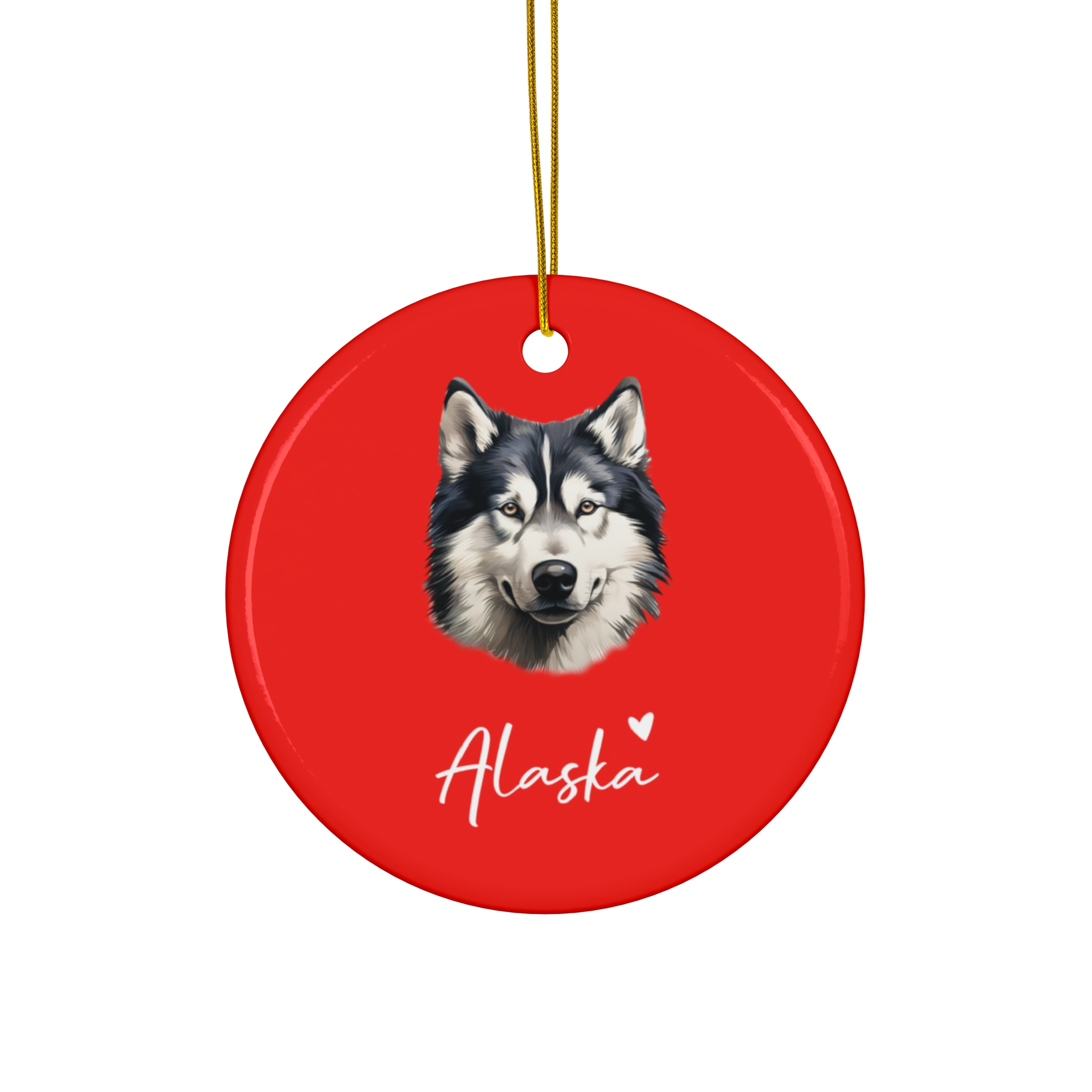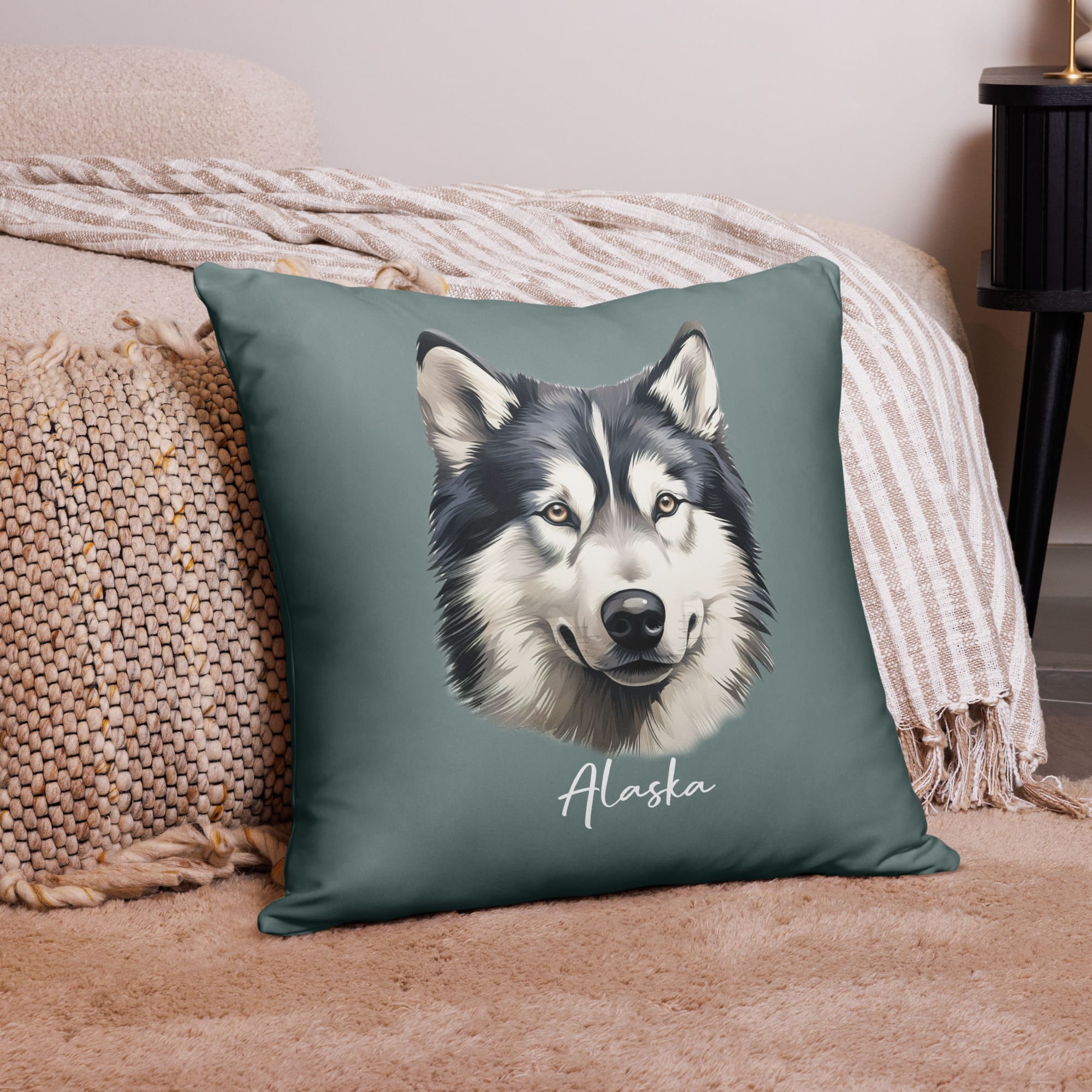Breed Overview
What to Know About: Alaskan Malamute
The Alaskan Malamute is one of the most majestic and powerful dog breeds, known for its wolf-like appearance and incredible strength. Originally bred to haul heavy loads over long distances, these dogs have a rich history and continue to win hearts with their loyal, affectionate nature.
- Coat: These large, fluffy dogs have a thick, double coat that comes in gray, black, white, copper, and sable. Some coats may be longer than others
- Temperament: Gentle giants, loyal, affectionate, playful, but can be independent and stubborn
- Exercise needs: High, at least 2 hours of exercise per day
- Training: Needs early and consistent training, can be stubborn
- Grooming: Moderate, requires brushing 2-3 times per week
Dog Breed Characteristics
The Powerful Arctic Explorer: A Loyal and Playful Companion
Weight
75-100 pounds (34-45 kg)
Height
1 foot 11 inches (60 cm) to 2 feet 1 inch (63.5 cm) tall at the shoulder
Origin
Alaska, United States
Life Span
10 to 14 Years
History and Origin
The Alaskan Malamute has deep roots that go back thousands of years. They were developed by the Mahlemut people in the Arctic regions of Alaska, where their primary job was to pull sleds, carry heavy supplies, and hunt. These dogs were relied upon for their strength and endurance to survive the harsh, icy environment. Over time, they played a key role in famous expeditions, including those to the South Pole.
Officially recognized by the American Kennel Club (AKC) in 1935, Alaskan Malamutes have since become a beloved breed across the world, not just for their working abilities but also for their friendly and outgoing personalities.
Physical Characteristics
Size and Weight
Alaskan Malamutes are large, powerful dogs. Males typically stand between 23 to 25 inches tall at the shoulder and weigh 85 to 100 pounds. Females are a bit smaller, usually around 21 to 23 inches tall and weighing 75 to 85 pounds. These dogs have a solid, muscular build, built for endurance and strength rather than speed.
Coat Colors and Patterns
One of the breed’s most stunning features is its thick, dense double coat, which provides insulation against the cold. Their coats can come in various colors, including gray, black, sable, and red, usually with striking white markings on the face, belly, and legs. Some even have a full white coat, but that’s less common. Their face markings often give them a wolf-like appearance, which adds to their appeal.
Lifespan and Health Considerations
The average lifespan of an Alaskan Malamute is 10 to 14 years, which is relatively long for a large breed. Like any breed, they come with specific health concerns, including issues like hip dysplasia, cataracts, and hypothyroidism. With regular checkups and proper care, most Malamutes enjoy long, happy lives.
Temperament
General Disposition
Alaskan Malamutes are known for their friendly, affectionate nature. They’re people-oriented dogs who love to be part of family activities. Despite their strong working dog background, they are surprisingly gentle and can be quite the goofballs when playing. However, they are also independent thinkers, meaning they don’t always follow commands right away. They thrive when they feel they are part of a pack, so being included in family life is important for them.
Personality and Intelligence
This breed is highly intelligent, but they also have a stubborn streak. Malamutes are known for being a bit headstrong, so training requires patience and consistency. Once trained, they are reliable and eager to please, especially if there’s a treat involved! Due to their intelligence, they can become bored if not mentally stimulated, so giving them challenges or tasks is key to keeping them happy.
Behavioral Traits
Alaskan Malamutes are social dogs but can sometimes show dominance, particularly with other dogs of the same sex. While generally friendly, they may be aloof around strangers. Their sheer size and strength mean that supervision is a must when around small children or pets. They are playful but can be a little too rambunctious for tiny tots.
Sociability with Children and Other Pets
When properly socialized, Malamutes are great with children and can be gentle and protective. However, due to their size, they might accidentally knock over smaller children during play. As for other pets, early socialization is crucial. Malamutes generally get along with dogs they’re raised with, but caution should be taken around smaller pets due to their prey drive.
Alaskan Malamute in numbers
Alaskan Malamute by the Numbers: Key Stats and Insights
Curious about the care, behavior, and health traits of the Alaskan Malamute? These percentages provide a quick snapshot of what to expect when owning this powerful and loyal breed, from exercise needs to grooming demands and sociability with other pets.
Things to Know When Owning an Alaskan Malamute
Diet and Nutrition
Feeding an Alaskan Malamute requires careful attention to portion sizes. These dogs love food and can easily become overweight, which can lead to health problems like hip dysplasia. A diet rich in protein, with high-quality ingredients tailored for large, active breeds, is ideal. Some owners even incorporate raw food diets or high-protein kibble to keep them in peak condition.
Exercise Needs
Alaskan Malamutes are a working breed, which means they have a lot of energy to burn. They require at least an hour of exercise daily, whether it’s long walks, running, or pulling activities like sledding or carting. Keeping them physically engaged helps prevent boredom, which can lead to destructive behaviors.
Grooming
Due to their thick double coat, Malamutes have moderate to high grooming needs. They shed heavily, especially during seasonal changes (you’ll notice their infamous “blowout” twice a year). Regular brushing, at least once a week, is essential to keep their coat healthy and prevent matting. Bathing is necessary every few months, but brushing and cleaning their ears, teeth, and trimming their nails are regular upkeep tasks.
Training
Basic Training Tips
Training an Alaskan Malamute requires patience. They are independent thinkers, so they might not always obey commands immediately. Positive reinforcement works best—treats, praise, and play are key motivators. Consistency is crucial, as they can be a bit stubborn.
Advanced Training
Since Malamutes are so intelligent, they can benefit from advanced training in agility, obedience, or even search and rescue work. They thrive when they have a job to do, so advanced training can help keep their minds sharp and their bodies active.
Training for Specific Behaviors
Alaskan Malamutes love to dig, which can be a challenge if you don’t want your yard full of craters. Providing them with a designated digging area or engaging them in activities like weight pulling can help redirect that energy.
Health Considerations
Common Health Issues
Alaskan Malamutes are generally healthy dogs but are prone to certain conditions, including:
- Hip Dysplasia: A common issue in large breeds, it’s important to maintain a healthy weight to prevent excessive pressure on their joints.
- Cataracts: They can develop cataracts as they age, leading to potential blindness.
- Hypothyroidism: A condition where the thyroid gland doesn’t produce enough hormones, affecting metabolism and energy levels.
- Day Blindness: Sensitivity to bright light can affect some Malamutes, particularly in daylight.
Lifespan and Aging
With proper care, Alaskan Malamutes live 10 to 14 years. As they age, attention to their joints and weight management becomes even more important. Senior Malamutes may require less exercise but will still need mental stimulation to keep them happy.
Living with an Alaskan Malamute
Home Environment
These dogs need space! They are not ideal for apartment living unless they get significant daily exercise. A secure, fenced yard is recommended as Malamutes love to roam and explore. Due to their thick coat, they’re more comfortable in colder climates, though they can adapt to warmer areas with proper care.
Compatibility with Other Pets
Malamutes can get along well with other pets if introduced properly. However, their strong-willed personality may clash with other dominant dogs, especially of the same sex. Early socialization can help smooth over any potential conflicts.
Fun Facts
Unique Traits
- Alaskan Malamutes have a striking wolf-like appearance, with their broad heads, erect ears, and curled tails.
- Historically, they were sled dogs used during the Alaskan Gold Rush and even assisted in Antarctic expeditions.
- While they may look serious, Malamutes are playful and often exhibit a goofy side that endears them to their families.
Final Thoughts
Alaskan Malamutes are more than just pretty dogs—they’re hardworking, intelligent, and loyal companions. They require dedicated care, from proper grooming to consistent training, but the reward is a lifelong companion who will love you with all their heart. If you’re ready for a dog that combines beauty with brawn, the Alaskan Malamute might be the perfect addition to your family!
Shop Alaskan Malamute Gifts: Perfect for Dog Lovers
Discover our selection of print-on-demand gifts tailored for Alaskan Malamute enthusiasts.
Personalized Alaskan Malamute Dog Bowl
31,00 € – 35,00 €Product Details:
• Personalization Available (See Below)
• Double-wall stainless steel
• Anti-slip rubber base
• Food grade safe
• Dishwasher safe when the rubber base is removed
Alaskan Malamute Personalized Dog Tag
19,00 €Product Details:
• Personalization Available (See Below)
• Print on both sides
• Material: white coated solid metal
• Size: 1″ round
• Metal clip included
Alaskan Malamute Personalized Christmas Ornament
13,00 €Product Details:
• Personalization Available (See Below)
• 0.125″ (3mm) thick high-quality ceramic
• Glossy finish
• Available in 4 shapes – Snowflake, Star, Heart and Circle
• One-sided print
• Hole and gold-toned hanging string included
• The height of the hole can slightly deviate
• NB! Each pack contains a single ornament
Alaskan Malamute Personalized Dog Pillow
23,00 € – 26,00 €Product Details:
• Personalization Available (See Below)
• 100% polyester case and insert
• Fabric weight: 6.49–8.85 oz/yd² (220–300 g/m²)
• Hidden zipper
• Machine-washable case
• Shape-retaining polyester insert included (handwash only)












